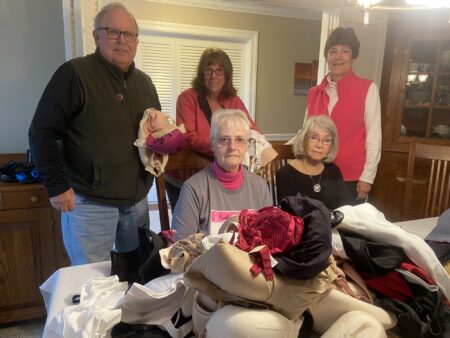HARRISBURG – The Pennsylvania Public Utility Commission (PUC) has released 2022 Winter Reliability Overview Reports from the state’s major natural gas distribution companies (NGDCs), along with a related Readiness Report from the Energy Association of Pennsylvania (EAP).
According to projections provided by EAP, home heating costs are expected to rise significantly over the winter, driven by an estimated 5% increase in consumption (for households that use natural gas as their primary heating fuel), along with a 28% rise in natural gas prices compared to last winter.
Additionally, all of Pennsylvania’s major NGDCs indicated that they have sufficient supplies and procedures in place to ensure reliable natural gas service this winter.
The Commission also continues to encourage consumers to #CallUtilitiesNow to explore affordability options to help remain connected and safe during the coming cold weather months.
Natural Gas Reliability Overview Reports
The reliability overview reports provide insights regarding preparations for conditions that may affect service reliability, supply, and prices for the winter months, including topics such as system readiness; employee safety/readiness; communications outreach; gas supply and planning; and natural gas demand for electric generators.
The winter readiness overviews can be viewed using the following links:
- Columbia Gas of PA
- National Fuel Gas
- PECO Energy
- Peoples Natural Gas & Peoples Gas
- Philadelphia Gas Works
- UGI Utilities – Gas Division
- Energy Association of PA
The full reports are also posted on the “Reliability” section of the PUC website.
Consumer Preparedness – #CallUtilitiesNow
In addition to utility readiness, the Commission continues to encourage consumers to prepare for the coming winter – underscoring the importance of consumers, businesses and utilities continuing to work together during this unprecedented time.
“As Pennsylvania consumers, businesses, and public utilities move into another winter heating season, our neighbors and our communities face the continuing pressures of volatile energy prices, inflation impacting other expenses, and economic uncertainty,” the PUC noted in a recent letter to utility CEOs. To help address those concerns, “the PUC continues to encourage residents and businesses to #CallUtilitiesNow to explore various utility assistance programs and other options to help manage their energy use and keep bills affordable.”
The PUC strongly encourages concerned or struggling households to #CallUtilitiesNow to explore all the available options. Public utilities are the first and most direct mechanisms to link struggling households with much-needed assistance.
Utilities understand the assistance programs available in their communities for income-qualified consumers – including utility-run Customer Assistance Programs (CAP), national programs like the Low Income Home Energy Assistance Program (LIHEAP), and various hardship fund programs operated by utilities and non-profit organizations. Utilities also can help enroll consumers in assistance programs, guide them to other available resources and discuss new payment plan options to address overdue balances and help consumers move forward.





















